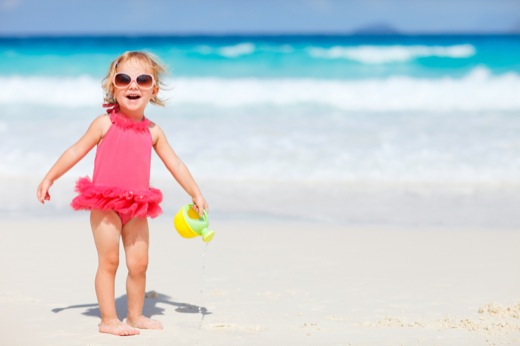Summer Sun Safety: Keeping Your Children Safe in the Sun
The sun can be rejuvenating, but it can also be dangerous. It is important for people of all ages to get exposure to sunlight since this is the best way to help the body produce vitamin D. Too much sun however, can cause painful burns, blackouts, and sun poisoning. It can also dehydrate young children very quickly. Keeping your children safe from the sun may be more important than you think.
Is the Sun Dangerous?
Melatonin is the chemical that the body produces to protect you and your children from the sun’s rays. The very fact that it exists tells you that too much time in the sun can be harmful. Melatonin causes the body to “tan”, preventing the sun from impacting the layers beneath the skin as well as some of the layers of skin closest to the muscles.
Timed Exposure
You can combat the effects of the sun with timed exposure. The general rule is that 20 minutes of sunlight is necessary for each day. Children are more sensitive to the sun, so they may need less time in one block. As they become more acclimated to the sun, they may be able to safely handle longer periods of time in it. The paler the child is, the less time they should spend in the sun.
UV Protection
When you do buy a product to help protect your child from the sun, make sure it offers UV protection. For example, some of the sunglasses sold are very cute, but can damage the eyes of your child. They don’t actually protect from UV rays. The pupils get bigger to let in more light since the sunglasses block out some of the brightness. As the pupils get bigger, they let in more UV rays. This means if your child is wearing sunglasses that don’t offer UV protection, you are actually damaging their eyes and retinal nerve.
Use Natural Protection
Keep your child in the shade if possible. Cloudy days still let UV rays through, so don’t assume your child is safe on those days. If you plan to use a topical solution to protect your child, use an all natural one. The skin absorbs whatever you put on it. If you apply chemicals to the skin of your child, they are going to absorb them. Children are also prone to putting things in their mouths. You really don’t want your child to ingest a countless list of chemicals.
Above all, use common sense when keeping your child safe from the sun. Know that water magnifies the rays of the sun and can lead to serious sunburn. Make sure that your child drinks healthy drinks or eats fruits or juicy vegetables that will keep him or her hydrated through the day.

